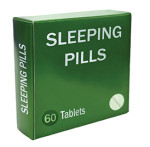Flu Shot, Weight Gain, Alzheimer’s Research & more…
Posted on November 3, 2015 by bob in NewsUCanUse
Flu Shot May Reduce Stroke Risk
The risk of suffering a stroke is significantly reduced for up to two months after receiving a flu vaccine, a major new study has shown. Research by the University of Lincoln, UK, showed the chances of having a first stroke fell by about a fifth in the first 59 days after receiving the flu shot. In the first week after the shot there were 36% fewer cases of stroke than would be otherwise expected among a ‘baseline’ population. The second week showed a 30% reduction with the third and fourth weeks showing 24% fewer stroke cases, dropping to 17% between 29 days and 59 days after the jab.
It is thought that some cardiovascular diseases may be triggered by flu. Protection provided by the flu vaccine against the seasonal influenza virus could therefore also protect against these conditions, which include stroke. Vaccines administered earlier in the flu season offered greater protection. — University of Lincoln, UK. Published in the journal Vaccine
Sit More, Weigh More
Recent studies show sedentary jobs have risen 83% since 1960 and now account for 43% of all jobs in the U.S. Office workers now sit more than 80% of the workday, placing them at increased risk for many sedentary-related diseases.
American workers today burn roughly 100 fewer calories a day at work compared to workers in 1960. This decline in energy expended at work is thought to play a substantial role in the rising obesity epidemic observed over the same time period.
— University of Iowa. Published in the American Journal of Preventive Medicine.
Sleep Aids & Cognitive Function
Sleeping pills can affect your memory and cognitive abilities. Medications such as Valium, Restoril, Ativan, Serax, Xanax and others, whether short-, intermediate- or long-acting, have been shown to increase the risk of cognitive impairment and delirium in older adults. Consequently, the American Geriatrics Society recommends drugs in this class not be used for the treatment of insomnia in seniors. Short-term memory loss has also been linked to the over-the-counter antihistamine Benadryl, also an ingredient in sleep aids such as Tylenol PM and Unisom. — Scientific American Consumer Health, Health After 50, www.healthafter50.com.
Restless Legs Syndrome Linked to Health Issues
Those with Restless Legs Syndrome (RLS) are at higher risk for stroke, heart and kidney disease, and earlier death, a database study of veterans found. RLS occurs when a person lies down to rest and has an uncontrollable urge to keep moving their legs. It’s considered a neurological, sleep, or movement disorder and affects up to 10% of people in the U.S.
The study does not show that RLS directly brings on any of the other conditions, only that there’s an association. It could be that RLS may result, in part, from other underlying health conditions. The condition, which can occur at any age, often runs in families and specific gene variants have been linked to it. — Memphis VA Medical Center, University of Tennessee Health Science Center, University of California, Irvine. Published in the Journal of Sleep Research.
Measles Risk: 25%
Gaps in measles vaccination rates place almost 25% of children three and younger at risk for becoming sick from the highly contagious illness, according to an analysis of American national vaccination coverage by researchers at Emory University in Atlanta. Measles can lead to pneumonia, encephalitis, hospitalization and occasionally, death, and is one of the most contagious of the vaccine-preventable diseases. Those who are not vaccinated or are under-vaccinated are highly susceptible to becoming ill.
Children are required to receive the measles vaccine before attending school, but some are exempt due to medical issues such as an immune disorder or cancer. The measles vaccine is a weakened live virus. It does not cause disease but is not recommended for those with compromised immune systems. Most states also offer exemptions for religious or personal reasons. Three states, most recently California, do not offer non-medical exemptions. — Infectious Diseases Society of America
Alzheimer’s Prevention Trial
A pioneering medical trial is launching this year to determine whether two investigational drugs can prevent or delay the emergence of symptoms of Alzheimer’s in people at particularly high risk for developing the disease at older ages. The five-year trial, conducted by the Banner Alzheimer’s Institute in Phoenix, AZ, and Swiss drug company Novartis, will involve more than 1,300 cognitively healthy older adults, ages 60 to 75. Through genetic counseling participants will know they are at high risk of developing symptoms of Alzheimer’s, having inherited two copies of a gene strongly linked to late-onset Alzheimer’s. About 2% of the world’s population carries two copies of this gene, with 25% carrying one copy.
Rather than trying to reverse the damage caused by Alzheimer’s, researchers hope to attack and prevent its cause years before symptoms can surface. For more information visit the trial’s website, www.endalznow.org.
To Bed Late? Gain Weight!
Teenagers and adults who go to bed late on weeknights are more likely to gain weight than their peers who hit the hay earlier, according to a new study from the University of California, Berkeley. The study found a correlation between sleep and Body Mass Index (BMI). A healthy adult BMI range is estimated to be 18.5 to 24.9.
A study of more than 3,300 youths and adults found that for every hour of sleep lost, 2.1 points were gained on the BMI. This gain occurred roughly over a five-year period.
— University of California, Berkeley









